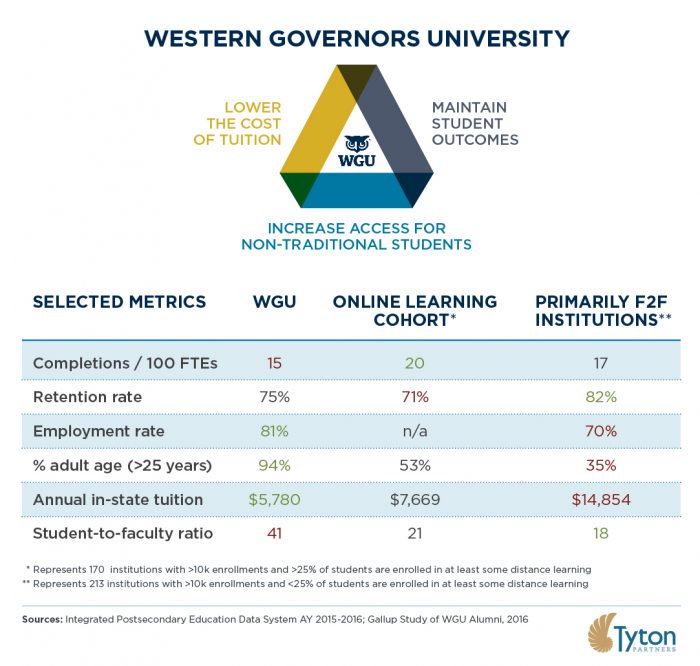GenAI and K-12: Hype, Headwinds, and Durable Investment Opportunities
September 18, 2025 BlogIntroduction Yes, it’s another email hitting your inbox with GenAI in big bold letters. We recognize the last…
The Bottom Line
As we head to Philadelphia for EDUCAUSE this week, we’re struck by the symbol of the Liberty Bell as we contemplate the fractured state of higher education’s service to the adult learner. The recent OIG findings threaten to dismantle the progress WGU has made in scaling an education model that is achieving results for adult learners. The OIG has judged that Western Governors University (WGU) (and by implication possibly other competency-based and online learning models) fail to meet the “regular and substantive interaction” requirement between faculty and students. If Western Governors University (WGU) is forced to adjust its existing model, the adult learners that it serves have the most to lose.
And at what cost? WGU serves a primarily adult-age population that benefits from the online, self-paced competency-based education (CBE) programs. At an average time to completion of 2.5 years, a bachelor’s degree at Western Governor’s University costs students an average of $15,000, offering a much higher ROI than comparable institutions. While the quality of the learning experience is surely important, the combination of affordability, access and student outcomes must be factored into the equation as well.

What could losing Title IV eligibility mean for WGU?
The institution’s learning model is reliant on a high student-to-faculty ratio, particularly because of the significant levels of investment in technology and curriculum to develop self-paced CBE degrees. In essence the course design carries more of the teaching burden. According to a report by rpkGroup, it takes start-up competency-based programs ~6,000 enrollments to break-even. 65% of WGU students currently receive financial aid; without access to Title IV funds, WGU could face a dramatic decline in enrollments and disrupt its business model. The findings of the OIG highlight the need to reform the policy infrastructure around online learning in higher education with the adult student population in mind.
In an environment in which students are struggling to afford a college degree, are we willing to rethink the learning process to meet the needs of nontraditional students? WGU and others in online education will continue to bear the burden of demonstrating their ability to meet high quality standards with the introduction of new learning models. Even though WGU enjoys bipartisan support, it will be important to monitor the DOE’s response to the OIG audit and its impact on innovative learning models.
Come see us at EDUCAUSE to learn more…
Tyton Partners advises institutions on strategic planning, teaching & learning innovation and student success. We advise companies working to provide innovative and impactful support to institutions in higher education. Click here to connect with our team at EDUCAUSE in Philly this week to learn more about our work, or come see us present here, here or here!